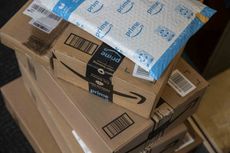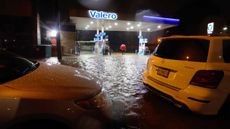10 Things to Know About Hurricane Insurance Claims
Know what's covered, what isn’t, and how to make the most of your policy if you need to file a claim.
- (opens in new tab)
- (opens in new tab)
- (opens in new tab)
- Newsletter sign up Newsletter
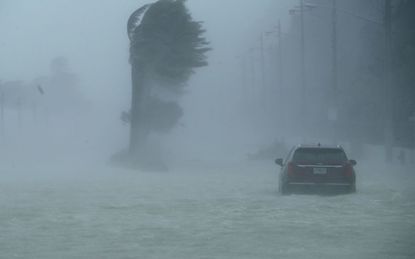

Eight of the 10 costliest natural disasters in U.S. history have been hurricanes, and while numbers for Hurricane Ian are preliminary at this point, there's a good chance it will join this grim list.
If your home has been affected by a hurricane, you can learn a lot from the experiences of past victims of natural disasters who had to assess the damage, contact their insurers, and start on the long process of physical and financial recovery after recent record hurricanes. Here’s how to get the money you deserve from your insurance company and ways to make the most of other assistance to fill in the gaps.
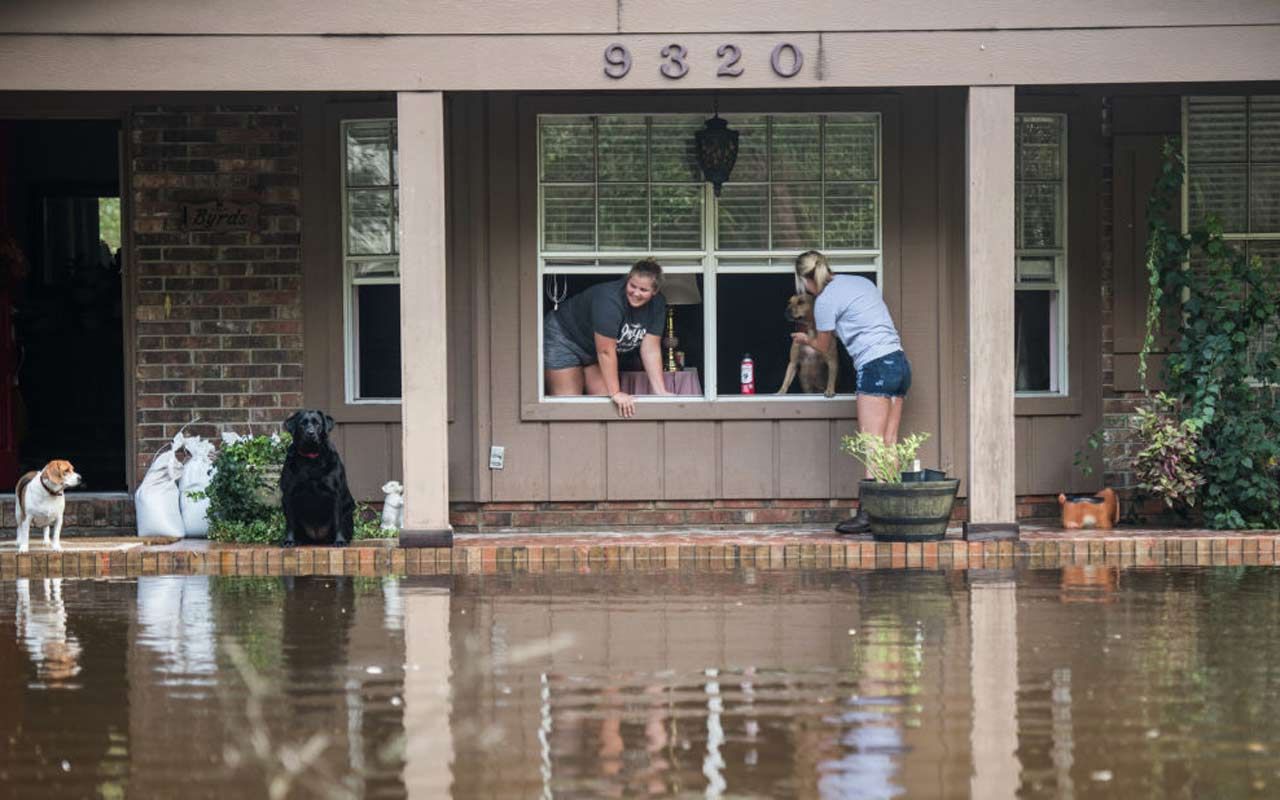
Flooding Isn’t Covered by Homeowners Insurance
In general, damage caused by wind, wind-driven rain and water that comes into your home through the roof, windows, doors or holes in the walls is covered by homeowners insurance. But damage from flooding or water that rises from the bottom up—from the overflow of a body of water, for example, or a storm surge—is not covered.
A lot of the damage in Florida from Hurricane Ian was from flooding and will only covered if you had flood insurance, such as through the FloodSmart.gov (opens in new tab) National Flood Insurance Program or a private flood insurer. Early reports indicate that few of the many inland properties that suffered damage from Ian have this critical coverage.
But even if you didn’t have flood insurance, it’s still worthwhile to contact your home insurance company to see whether some of your expenses will be covered, such as wind damage to your roof or the additional living expenses you incurred while you were out of your house. See Federal Emergency Management Agency’s Wind Damage vs. Flood Damage fact sheet. (opens in new tab)
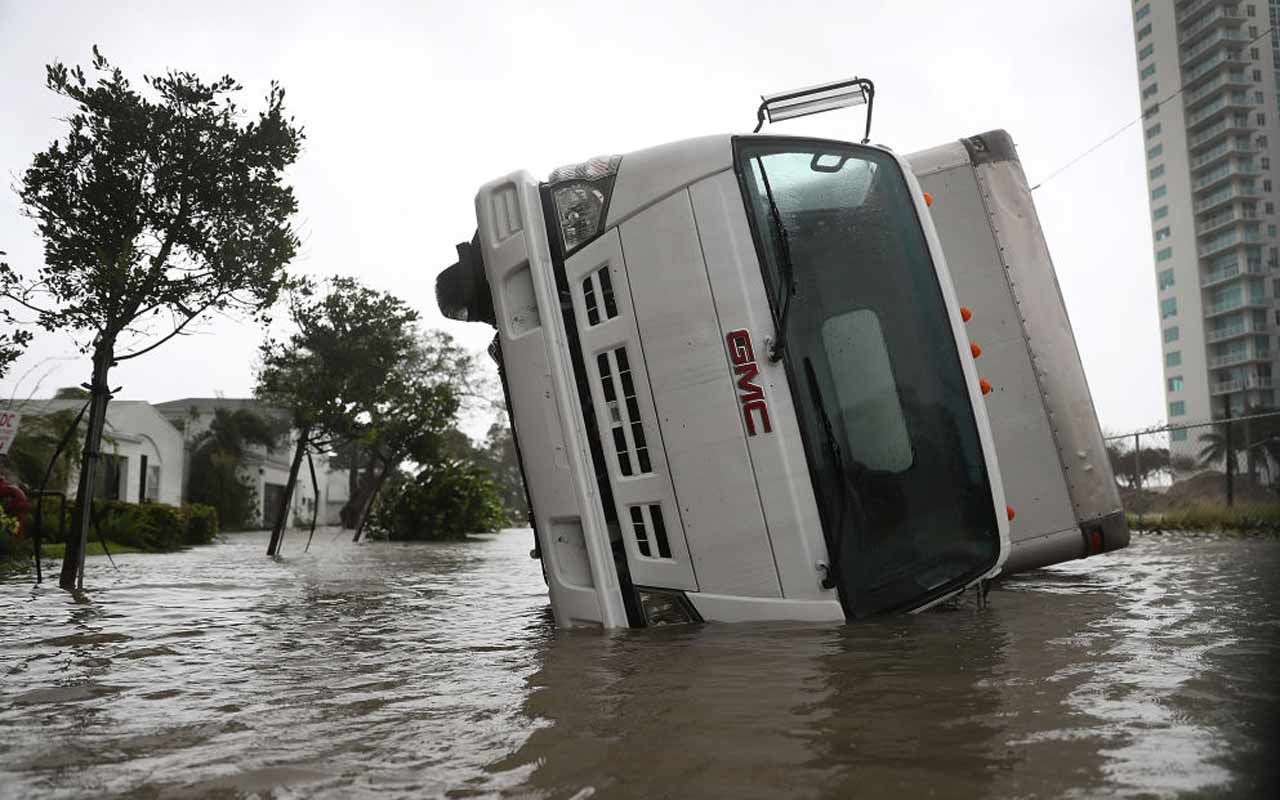
Flooding Is Covered by Auto Insurance
If your car insurance includes comprehensive coverage (which insures against the type of physical damage not caused by an accident), then flooding would be covered. In many cases, the water damage can be so bad that the insurance company will declare the car a total loss and pay the claim for the value of the car (minus the deductible). Also, be careful if you’re buying a used car in the months following a major hurricane as vehicles with flood damage enter the market. Water-damaged cars can pose serious safety risks, from faulty air bags to compromised electrical systems.
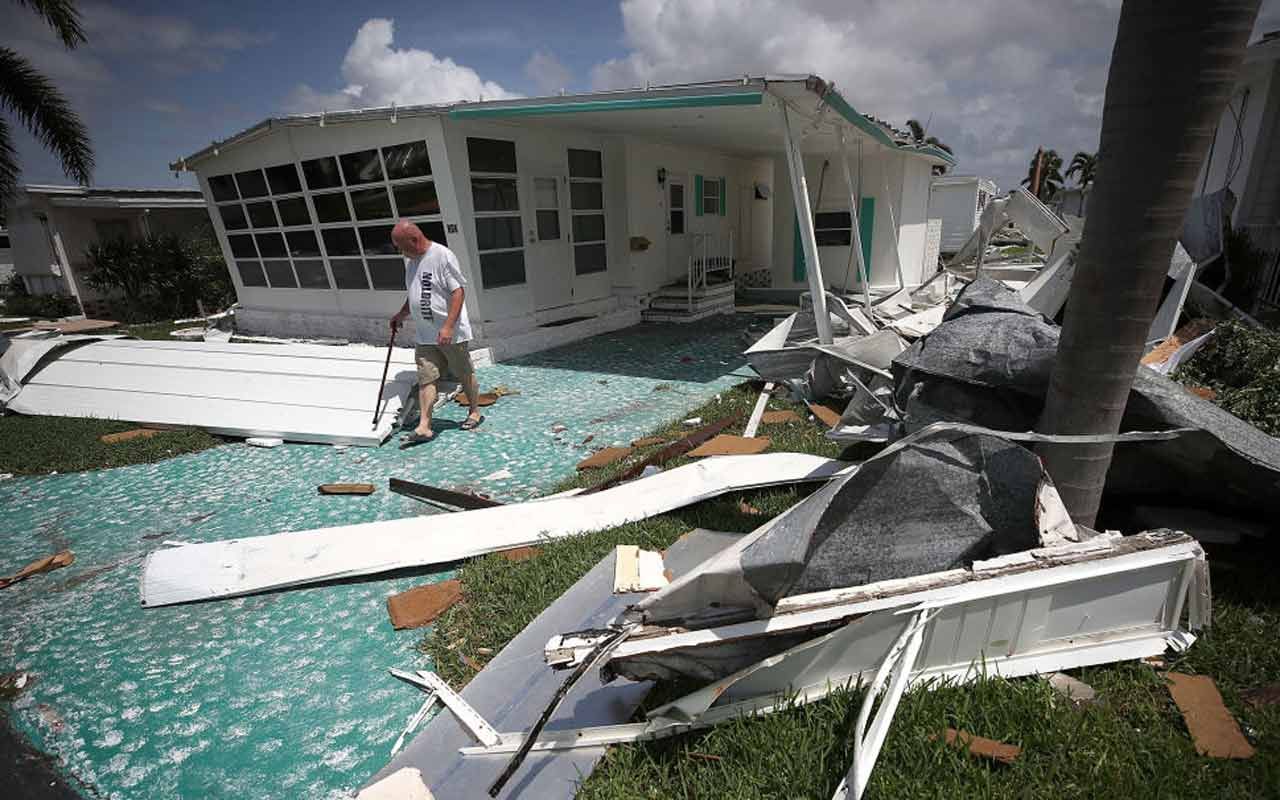
Contact Your Insurer and Start Documenting Your Claim Right Away
Insurers usually want you to make temporary repairs, such as putting up a tarp, to stop any further damage to the house, even before an adjuster assesses the property. But take pictures before you make those temporary fixes. See the National Association of Insurance Commissioners (opens in new tab)’ apps and other resources to help you document the damages. Also keep receipts of any supplies you had to purchase for repairs, which may be reimbursed by your insurer.
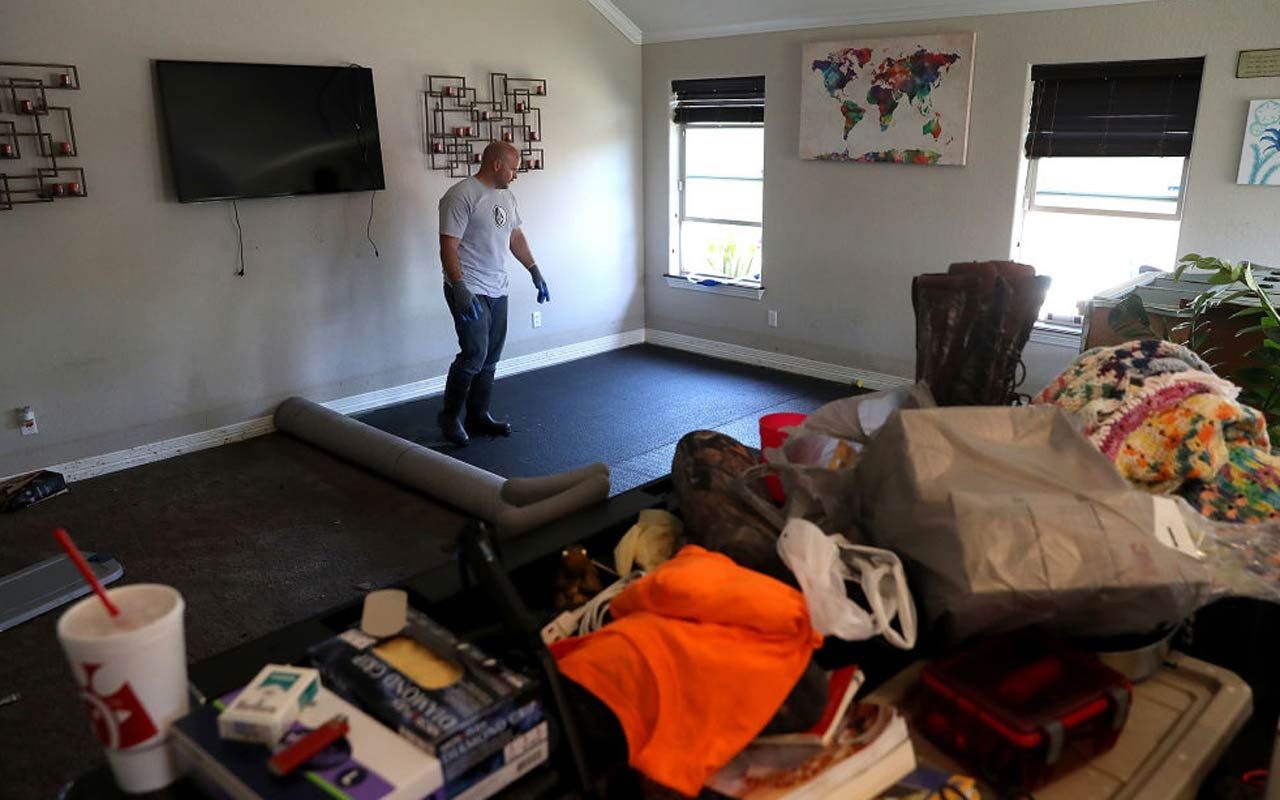
You May Have a Much Higher Deductible for Hurricane Damage
While damages from wind and wind-driven rain are covered by a standard homeowners policy, many charge separate wind deductibles, which means higher out-of-pocket costs for you. The deductibles are usually based on a percentage (roughly 5% to 10%) of your coverage rather than a flat dollar amount.
That can really add up. For example, suppose your home is insured for $500,000 with a 5% wind deductible, and you have $30,000 worth of roof and siding damage from high winds. You’re responsible for $25,000, with your insurance covering only $5,000 of the damages.
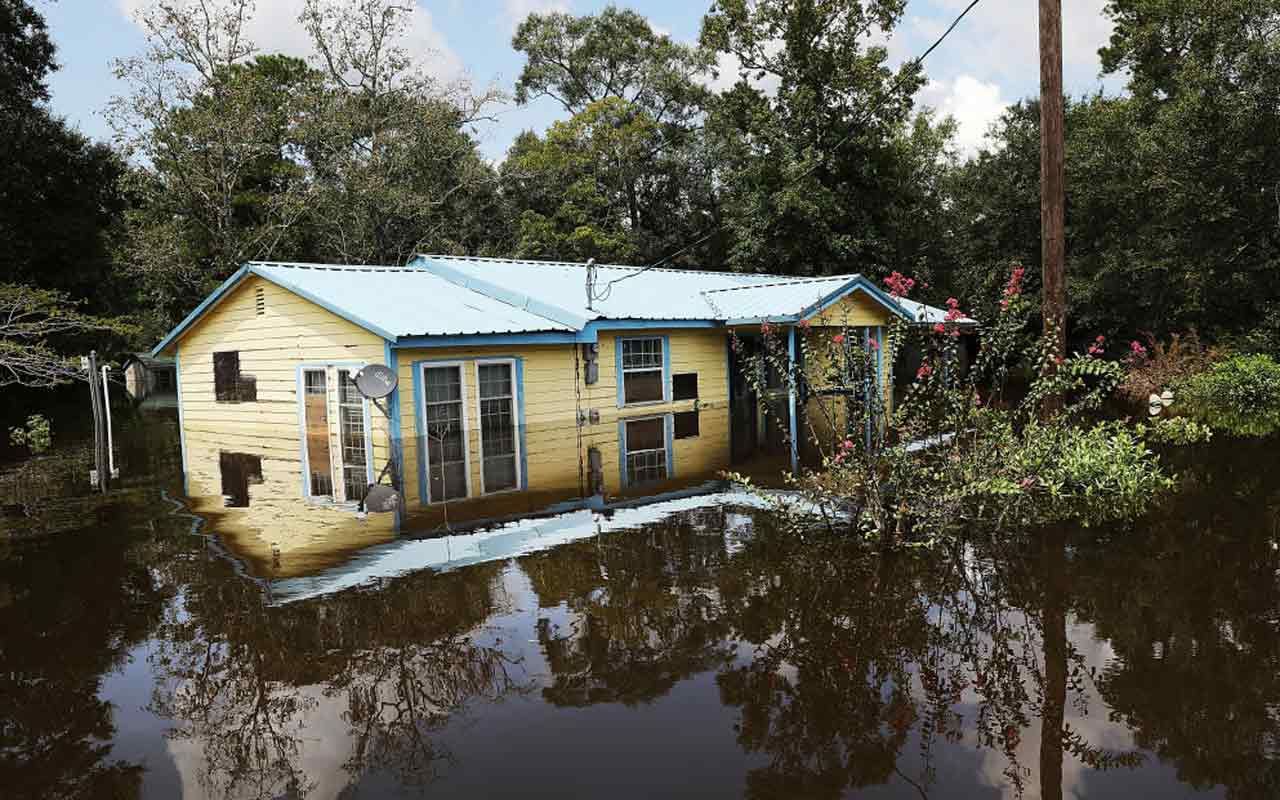
Find Out If You Qualify for Other Assistance
Most states’ emergency management agencies have information about other resources to help after a hurricane, such as emergency housing, medical and financial assistance from a variety of nonprofits and government agencies. Start by typing your address in the tool at DisasterAssistance.gov (opens in new tab) to find out about aid in your area, including money for living expenses and rebuilding. You can also get in-person help at a FEMA disaster recovery center.
Look up the nearest one using the recovery center locator (opens in new tab) or the FEMA mobile app (opens in new tab). You may also qualify for SBA Disaster Loan Assistance (opens in new tab), a low-interest loan available for homeowners and renters to repair or replace damaged property. (Even though it’s offered by the U.S. Small Business Administration, you don’t need to be a business to qualify.) Also see links to the state emergency management agencies (opens in new tab).
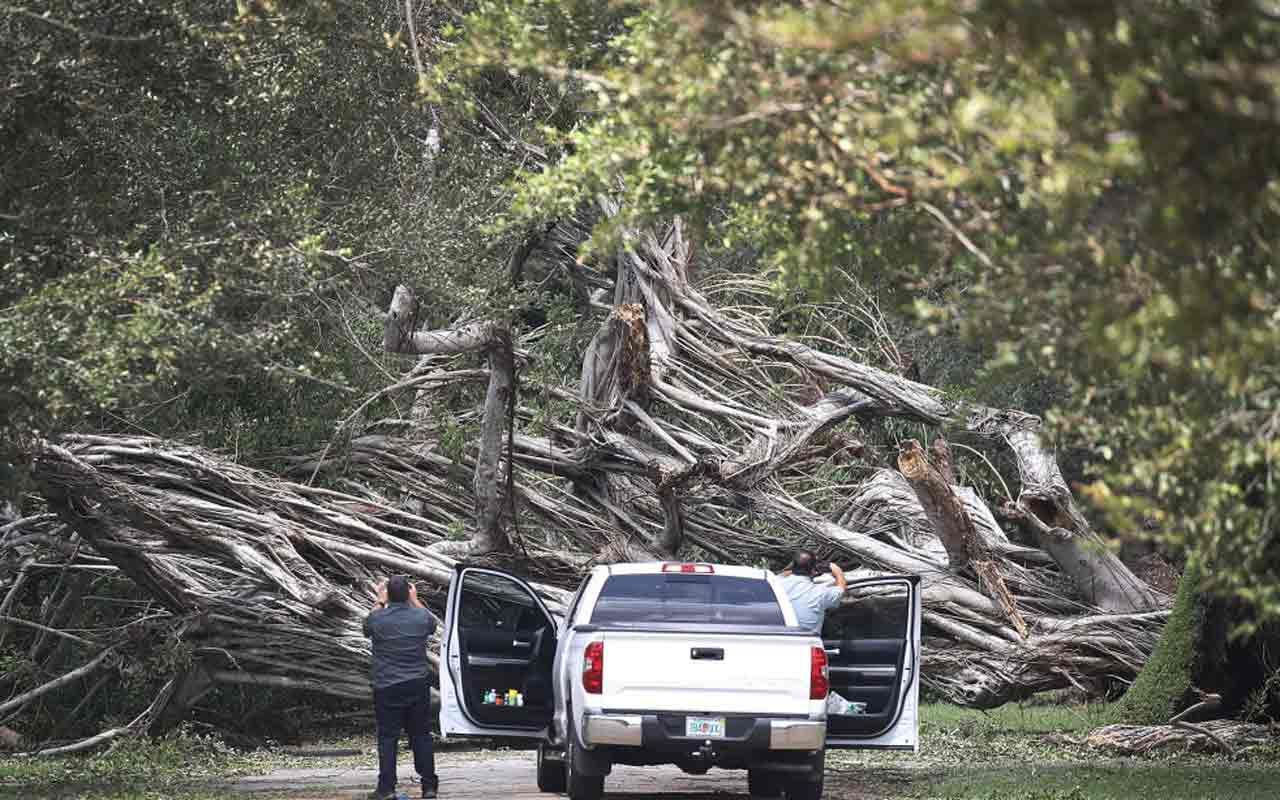
Understand the Rules for Fallen Trees
Even if a hurricane didn’t destroy your home, you may have some damage from fallen trees. If your tree damages a neighbor’s property—say, crushing a garage or fence—your neighbor should file a claim with his insurance company, which will generally pay to fix the damage. When a tree falls and doesn’t hit anything, insurance policies will typically pay just $500 to $1,000—or sometimes nothing—for the cleanup.
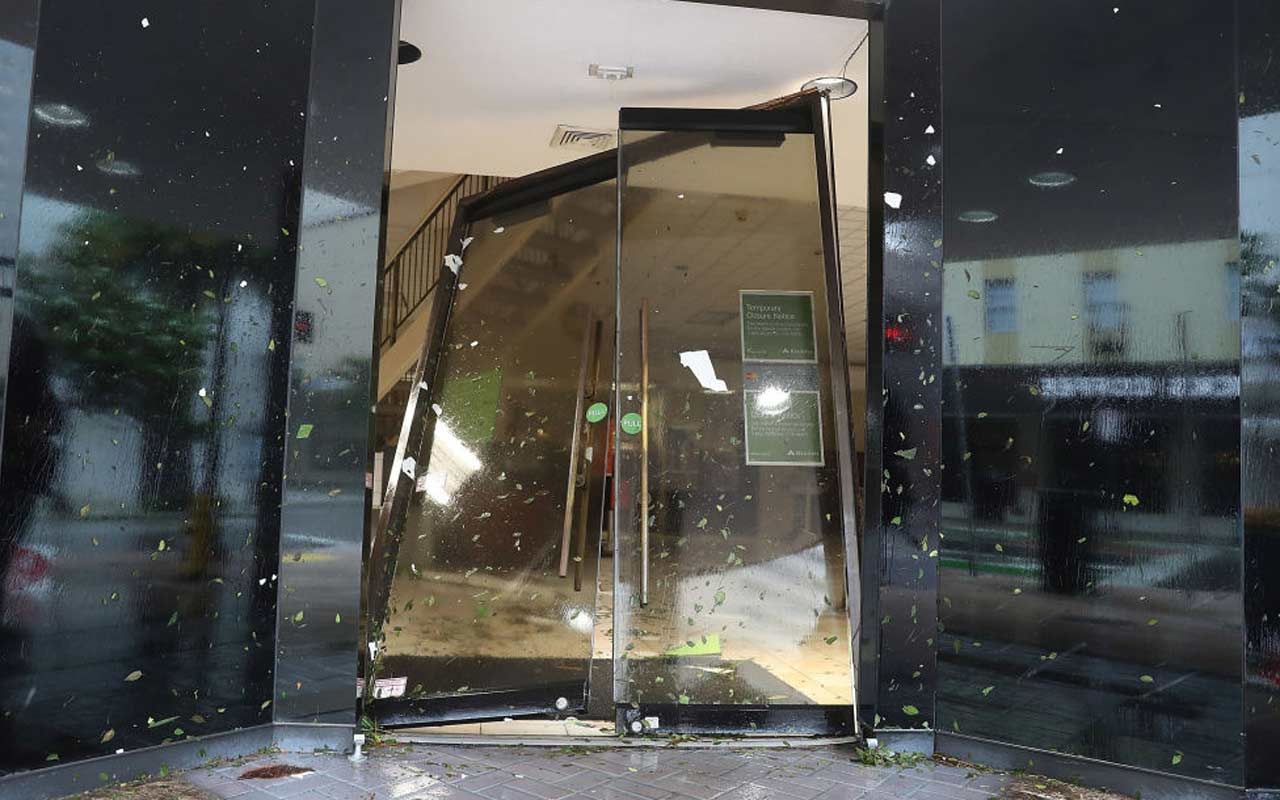
Your Insurer May Pay for Living Expenses While You’re Out of Your Home
Most homeowners policies pay for additional living expenses—including rent, food and other costs—for up to a year while you’re unable to live in your home, or up to a certain percentage of your total coverage amount. This may be the first money you get from your insurance company before it determines how much to pay to rebuild your home. These living expenses can really add up if you’re out of your home for a while as you wait for your house to be rebuilt. Keep the receipts for reimbursement. Some insurers provide debit cards for these expenses.
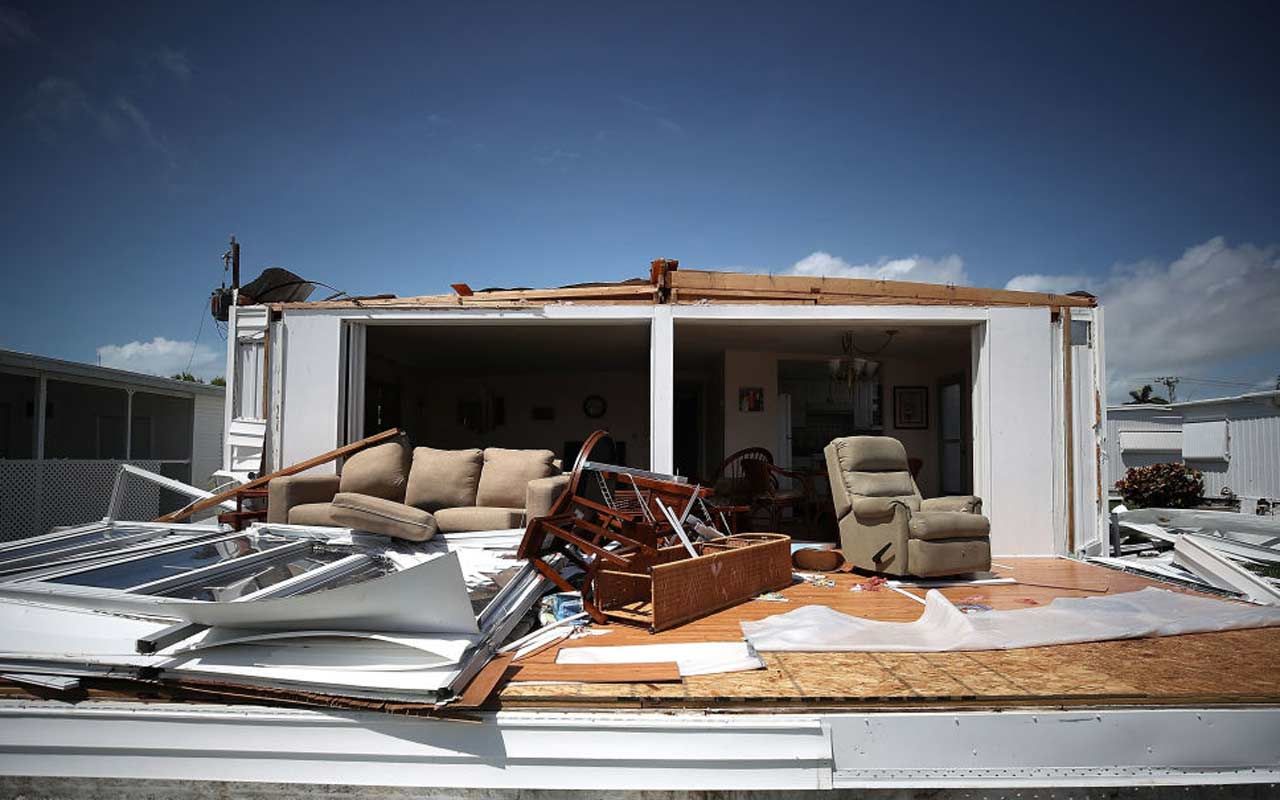
Get Credit for All of Your Possessions
If you had a home inventory listing your possessions, and you kept it online or outside of your home, you’ll have a great head start when filing your claims. Otherwise, you may be able to piece together information that can help with your claim. Any photos you have of the rooms in your home can provide evidence to the insurer about items that were damaged.
Also look for any receipts for valuable items. And take pictures after the hurricane but before removing debris so that you have some documentation that the items were damaged in the storm. See How to Get Your Insurer to Pay Your Claims (opens in new tab) to read about how people have pieced together inventories after tornados and water-damage claims—and what they wish they would have done differently.
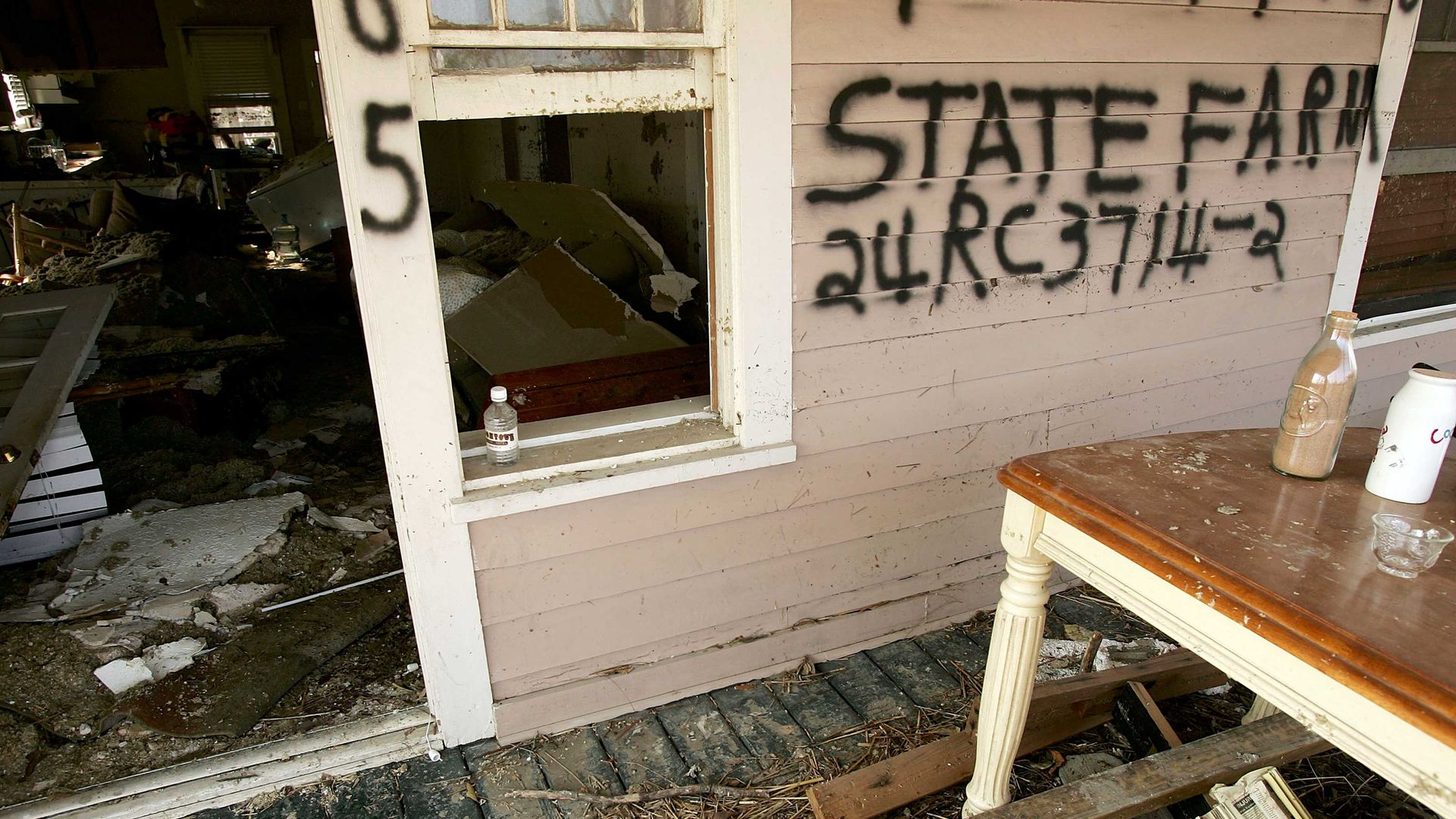
Take Advantage of In-Person Support
State insurance departments often dispatch consumer protection staff to disaster areas to answer questions and help you contact your insurer. Many insurance companies also have mobile claims units on the ground to assist with filing a claim and to answer any questions.
State insurance departments can also step in if you’re having trouble contacting your insurer or getting your claim paid. Many insurance departments also set up special mediation programs to help resolve disputes between residents and their insurance companies after a major disaster. For more information, see the National Association of Insurance Commissioners' insurance department map (opens in new tab) for contact information in your state.
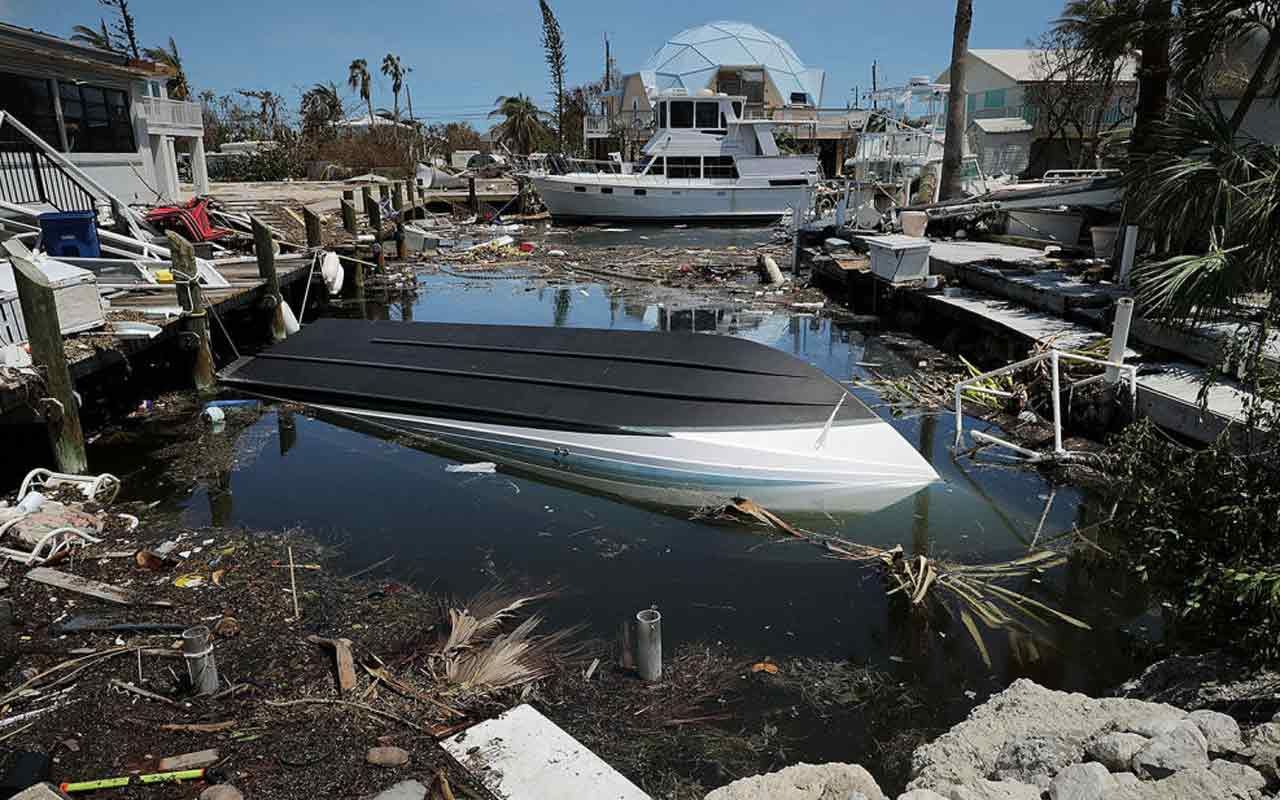
Get Help From the State Insurance Department Throughout the Process
The state insurance department can help you with questions as you start to file your claim, and it can also step in if you’re having trouble contacting your insurer or getting your claim paid. Many insurance departments also set up special mediation programs to help resolve disputes between residents and their insurance companies after a major disaster. For more information, see the National Association of Insurance Commissioners' insurance department map (opens in new tab) for contact information in your state.

As the "Ask Kim" columnist for Kiplinger's Personal Finance, Lankford receives hundreds of personal finance questions from readers every month. She is the author of Rescue Your Financial Life (McGraw-Hill, 2003), The Insurance Maze: How You Can Save Money on Insurance -- and Still Get the Coverage You Need (Kaplan, 2006), Kiplinger's Ask Kim for Money Smart Solutions (Kaplan, 2007) and The Kiplinger/BBB Personal Finance Guide for Military Families. She is frequently featured as a financial expert on television and radio, including NBC's Today Show, CNN, CNBC and National Public Radio.
-
-
 Longevity: The Retirement Problem No One Is Discussing
Longevity: The Retirement Problem No One Is DiscussingMany people saving for retirement fail to take into account how living longer will affect how much they’ll need once they stop working. What should they do?
By Brian Skrobonja, Chartered Financial Consultant (ChFC®) • Published
-
 Capital Gains Taxes Trap: How to Avoid Mutual Fund Tax Bombs
Capital Gains Taxes Trap: How to Avoid Mutual Fund Tax BombsIt’s bad enough when your mutual fund’s assets lose value, but owing unexpected capital gains taxes after those losses is doubly frustrating.
By Samuel V. Gaeta, CFP® • Published
-
 5 Great Places to Buy a Vacation Home
5 Great Places to Buy a Vacation HomeWith remote work on the rise, more people are looking for a permanent getaway.
By Ellen Kennedy • Published
-
 The 10 Cheapest Countries to Visit
The 10 Cheapest Countries to VisitDespite inflation, there are some areas where the strong dollar will definitely work in your favor. Travel, for example... we find the cheapest places to visit around the world.
By Quincy Williamson • Published
-
 10 Big U.S. Cities With the Cheapest Apartment Rents
10 Big U.S. Cities With the Cheapest Apartment Rentsplaces to live Apartment dwellers pay less than the national average in these cities with the cheapest rent.
By Dan Burrows • Last updated
-
 The 11 Most Expensive Cities to Live in the U.S.
The 11 Most Expensive Cities to Live in the U.S.real estate From metro areas on both coasts to the middle of the Pacific Ocean, these are the most expensive cities to live in the U.S.
By Dan Burrows • Last updated
-
 The 25 Cheapest Places to Live: U.S. Cities Edition
The 25 Cheapest Places to Live: U.S. Cities Editionplaces to live Have a look at the cheapest places to live in America for city dwellers. Is one of the cheapest places to live in the U.S. right for you?
By Dan Burrows • Last updated
-
 Should I Cancel Amazon Prime? Here Are 12 Good Reasons
Should I Cancel Amazon Prime? Here Are 12 Good ReasonsAmazon Prime The giant retailer had a year of ups and downs, leaving many wondering: Do I need Amazon Prime?
By Bob Niedt • Published
-
 The Most Expensive Natural Disasters in U.S. History
The Most Expensive Natural Disasters in U.S. HistoryEconomic Forecasts Wind, water, fire and drought have all wreaked havoc on the United States. What’s been the worst?
By David Muhlbaum • Last updated
-
 How to Shop for a Low Mortgage Rate
How to Shop for a Low Mortgage RateBecoming a Homeowner Rates are higher this year, but you can still find an affordable loan.
By Daniel Bortz • Published








